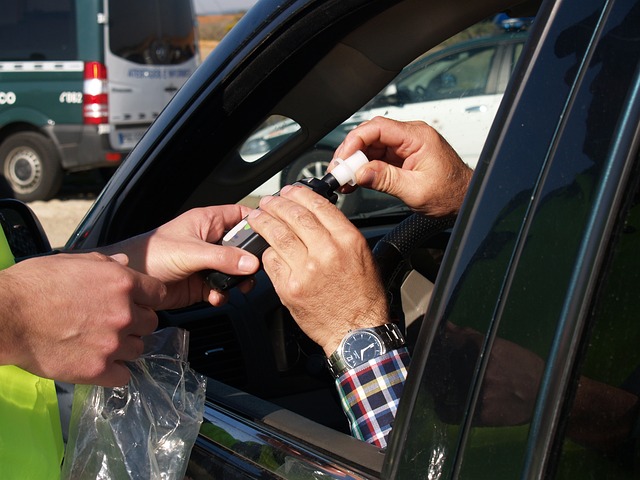What Happens If You Refuse a Breathalyzer Test in Nevada?

Refusing a breath or blood test during a DUI stop seems tempting in the moment. But before going down that road, be clear on what happens next.
In most states, test refusal leads to harsh consequences that significantly hurt your criminal defense case and driving privileges. Understanding these realities now allows you to make an informed decision when faced with an officer’s request.
In this article, we’ll have a transparent talk about standard DUI penalties for refusing breathalyzer or blood tests in a DUI investigation.
While every case differs, information is power when it comes to protecting your rights during a DUI case.
The Implied Consent Law and License Suspension
Under Nevada’s implied consent law, by driving on public roads, you are agreeing to submit to a blood or breath test if suspected of DUI.
When pulled over, the officer typically asks you to take a preliminary breath test using a handheld portable device.
It’s important to note that you reserve the right to refuse testing. However, it’s not without consequences.
If you refuse a roadside breath test, the officer will arrest you and transport you to a location where they will administer an evidentiary test of your breath or blood. If you refuse either of these tests, the officer will confiscate your driver’s license and revoke your driving privileges for up to one calendar year.
For subsequent offenses within seven years of the first, you may face a three-month suspension. This happens regardless of the outcome of your criminal DUI case.
And a refusal does not mean the end of your case.
If you refuse, police can still obtain a search warrant from a magistrate or justice of the peace to take your blood sample by force.
So, while refusing may seem like a get-out-of-jail-free card, it can often complicate things in the long run.
Using Breath Test Refusal Against You in Criminal Court
In addition to the administrative license suspension, your refusal can be used as evidence against you in criminal court. According to Nevada law, choosing to refuse to submit to a breathalyzer test indicates a “consciousness of guilt” on your part.
This means the prosecution can argue you refused because you knew your blood alcohol content (BAC) was over the legal limit of 0.08. In fact, they can treat your refusal as an admission of guilt.
Why Might Someone Refuse a Breathalyzer Test?
With the serious penalties involved, why do drivers refuse to take the breathalyzer?
There are a few common reasons drivers make this decision:
Hoping to Buy Time
Some drivers refuse the roadside breathalyzer in hopes that the extra time before a blood test allows their body to eliminate more alcohol. However, police can get a warrant and force a blood draw if you refuse.
Avoiding Solid Evidence
Drivers may think refusing the breathalyzer means the prosecutor has less concrete evidence against them. However, your refusal itself can be used as evidence that you likely believe you are over the legal limit.
Believing Refusal Limits Consequences
Many drivers mistakenly think refusing the breathalyzer will limit the penalties they face. In reality, you face longer administrative license suspension and a stronger potential for conviction and ignition interlock requirement.
Consulting a DUI Defense Attorney
Refusing the breathalyzer should never be a spur-of-the-moment decision. The consequences are too severe to risk making the wrong choice in the heat of the moment.
That’s why it’s critical to call our firm as soon as possible after your DUI arrest. We’ll send a criminal defense attorney to the testing facility to advise you in person before the evidentiary breath test.
Here are some of the key ways we can help:
- Assess whether we can challenge the reason for the traffic stop or chemical test request. If successful, the breathalyzer results could get thrown out.
- Explain how refusal could impact your criminal conviction, license suspension, and ignition interlock requirement. You’ll understand the legal implications before deciding.
- Use your cooperation with testing as a bargaining chip with the prosecutor to reduce charges.
- Build the strongest possible defense should your case go to trial. We know how to argue against the admission of breath test results.
The bottom line? Get legal guidance before deciding whether to refuse a breath test. Our legal advice can help you avoid unnecessary consequences as you navigate this challenging situation.
Don’t Jeopardize Your Case – Seek Seasoned Counsel
Being arrested for DUI is an overwhelming experience. With your emotions running high, it can be tempting to refuse the breathalyzer out of fear of what it might reveal. However, letting fear dictate your response could negatively impact your case.
Before you decide whether or not to take the breath test, speak to an experienced DUI lawyer. They will advise you based on the specifics of your case, not fear or assumptions. With strategic guidance, you can make the choice that provides the best possible outcome.
Skilled DUI defense lawyers know how to minimize the damage of a refusal and build a strong defense for trial. Their involvement can be the difference between losing your license temporarily or permanently.
Don’t go through this alone. Contact us for dedicated legal representation. Trust us to guide you through the criminal justice process and achieve the best resolution to your case. Schedule a free consultation today.



